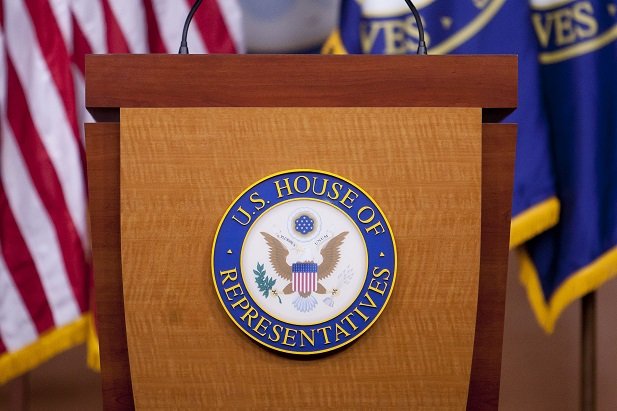 Source: Shutterstock.
Source: Shutterstock.
A bill introduced late last week aims to exclude the Small Business Administration (SBA) from engaging in any direct lending programs. The legislation, introduced by Rep. Blaine Luetkemeyer (R-Mo.), would also reform the SBA under the IMPROVE the SBA Act – a move both NAFCU and CUNA fully support.
In a statement, Rep. Luetkemeyer said, "Due to the pandemic, the Small Business Administration has been given an oversized role in the management of emergency relief programs. Through oversight, we have discovered the SBA is fraught with fraud, delays and mismanagement. We have also seen the SBA shift away from its core mission of serving small businesses to instead advancing the current administration's political agenda."
Recommended For You
According to details of the bill, it would prohibit the SBA from providing direct business loans under the 7(a) loan program and the bill would also "create a role for private-sector lenders like credit unions in the SBA's Disaster loan program."
Rep. Luetkemeyer added, "This bill provides much-needed accountability and oversight over the SBA, enhances private sector lending, empowers entrepreneurs through counseling and supports small businesses in federal contracting."
In a statement, CUNA President/CEO Jim Nussle thanked Luetkemeyer for working to preserve the relationships credit unions have with small business members. "Provisions like this ensure that communities advance through financial partners who understand the situation folks are feeling on the ground, rather than being affected by Washington bureaucrats," Nussle said.
In a letter to Rep. Luetkemeyer on Friday, NAFCU Vice President of Legislative Affairs Brad Thaler wrote, "Using the proven model of public-private partnerships with SBA programs is a common sense approach to ensuring SBA funds are properly used to target the communities they are intended to help. Any incursion into direct lending by the SBA comes with peril given the Federal government's track record of fraud and failure in past direct lending."
"Credit unions appreciate the opportunity to partner with the SBA and offer SBA products to their members," Thaler added. "We look forward to working with you on this legislation to ensure it continues that relationship."
In a statement, NAFCU President/CEO Dan Berger praised the bill's introduction. "NAFCU commends Ranking Member Luetkemeyer for recognizing the need for common-sense reform at the Small Business Administration and his leadership in introducing the IMPROVE the SBA Act.
"It is critical we shift the SBA back to its core mission, and NAFCU supports efforts in the legislation to prohibit the Administration from engaging in additional direct lending that could hurt existing small business-lender relationships – a win for credit unions that have continued to serve their members and have never lost sight of their community's job creators," Berger said.
The IMPROVE the SBA Act is the second such attempt to rein in any SBA lending efforts. In December, Sen. Tim Scott (R-S.C.) introduced a bill to prevent the SBA from becoming a direct lender. Sen. Scott's bill, the Protecting Access to Credit for Small Businesses Act, would thwart the SBA from making loans under its 7(a) program. The bill was tied to President Joe Biden's "Build Back Better" bill that attempted to allow the SBA to become a direct lender.
© Touchpoint Markets, All Rights Reserved. Request academic re-use from www.copyright.com. All other uses, submit a request to [email protected]. For more inforrmation visit Asset & Logo Licensing.







